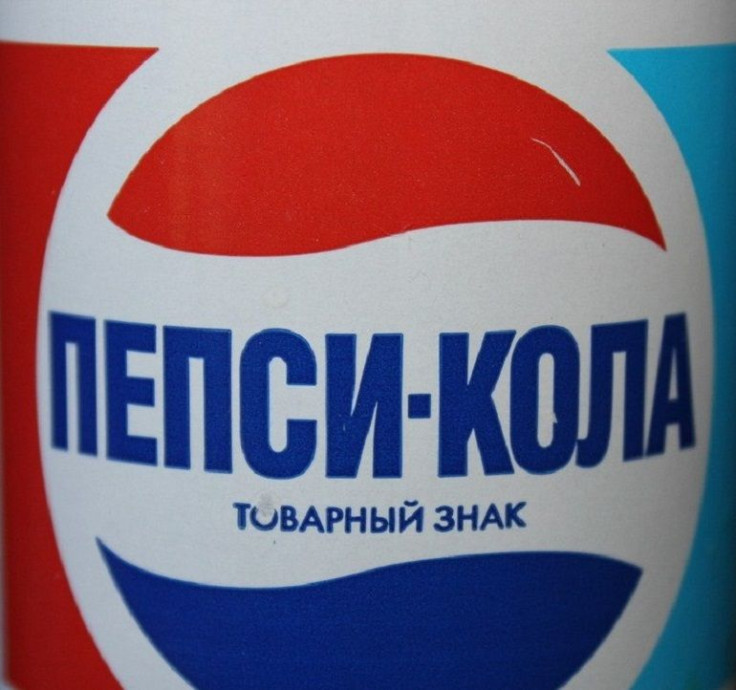Here's Why PepsiCo., Ford, Caterpillar And Boeing Are In A "Difficult Position" As Russian Economic Forum Draws Near

Dozens of senior executives at major U.S. companies have canceled plans to attend the St. Petersburg International Economic Forum later this month, responding to rising tensions over the Ukraine crisis -- and, in some cases, direct phone calls from the White House. They’ll be sending lower-level representatives in their place. But they haven't lost any interest in Russia.
The U.S. is one of Russia’s largest trading partners in terms of investment volume, which was worth about $12 billion in the first nine months of 2013, including $3.1 billion in direct investment, according to a SPIEF statement. The Ukraine crisis is therefore a delicate and highly inconvenient matter for some of America's largest companies.
“John Deere, Caterpillar, Pepsi and Boeing are all definitely in a difficult position,” said Martina Bozadzhieva, head of research for Europe, Middle East and Africa at multinational consultancy firm Frontier Strategy Group.
Here is some of what these top players have at stake:
PepsiCo Inc. (NYSE:PEP)
At the 2013 forum, guests consumed more than 10,000 cans and bottles of Pepsi, and met for panels and meetings at the “PepsiCo Cafe,” where they could sample the company’s products from around the world. Choices ranged from Quaker Old Fashioned Oats to Alvalle Original gazpacho to okroshka soup with veal tongue made from Russky Dar -- all Pepsi brands.
This year, the company’s chief executive Indra Nooyi canceled plans to attend, citing a scheduling conflict.
The beverage and food giant made $4.9 billion last year in Russia, its second-largest market. Volume growth there and in Eastern Europe helped offset a slow quarter for the rest of Europe.
Pepsi is the largest producer of food and beverages in Russia, and the largest buyer of potatoes. The company even invests in a “Potato Supplier Resource Programme” that supports Russian farmers.
Ford Motor Company (NYSE:F) and General Motors (NYSE:GM)
Russia is no small market for automakers. More than 2.78 million vehicles were sold there last year.
At the 2013 conference, representatives discussed plans to work with Russian companies, and last October, Ford announced that Ford Sollers would start full-cycle production of the Ford EcoSport sport utility vehicle this year and add 500 new jobs, bringing the total to 2,500.
Two years ago, General Motors' CEO broke ground for the expansion of GM Auto, its manufacturing facility in St. Petersburg, and spoke to leaders at the 2012 SPIEF conference about the importance of business in Russia. Today, executives plan to boost capacity to 350,000 vehicles, but are wary of the political situation.
“We’re watching the situation very closely on all fronts to be prepared to act,” said GM President Dan Amman.
Deere & Company (NYSE:DE) and Caterpillar Inc. (NYSE:CAT)
“As sectoral sanctions are most likely to come from the U.S., American companies are at risk of being blocked out of the market in the case of further destabilization, and this will first be felt in the machinery and industrials sectors where Russia is already looking to support domestic manufacturers of technologically advanced products,” said Bozadzhieva.
“Such companies would also face the very real risk of losing market share to European competitors,” she added.
The machinery-makers have also made big bets in Russia.
Caterpillar has five offices and 20 dealer organizations with $2.1 billion in assets that employ at least 5,300 personnel in Russia. Its first plant opened in Moscow in 1973, but Caterpillar has been present there since the 1920s.
Despite the long history, a company representative recently announced that they would not be sending CEO Doug Oberhelman, but Group President Donald Umpleby.
“Caterpillar is planning to be represented at the forum, but we’re monitoring the situation closely,” said representative Molly Donahue.
Russian operations brought in $1.7 billion last year for John Deere. Though it’s less than 5 percent of the company’s total revenue, it’s still substantial. There are two Deere factories and two offices in Russia, along with a network of 70 dealers.
According to a SPIEF press release, Deere representatives have been planning on an “agricultural park and machinery manufacturing complex,” in Orenburg, near the Kazakhstan border.
The Boeing Company (NYSE:BA) and Lockheed Martin Corporation (NYSE:LMT)
The global aerospace and defense giants sources much of their titanium from Russia, which is also the home to Boeing’s second-largest research and development center outside of the U.S. According to company reports, Boeing expects to spend $27 billion in Russia over the next few years.
“Russia is a quite attractive market for these industries because of double-digit increases in military spending,” said Bozadzhieva, adding that “U.S. sanctions already prohibit some exports for this industry, and any U.S. company in these industries engaging with the Russian government right now would be in an extremely politically sensitive position.”
However, one of their leading titanium providers, Rosetec, is headed by Sergey Chemezov, who is now under U.S. sanctions.
Last week, a U.S. Federal judge issued an injunction against a joint venture between Lockheed Martin and Boeing to purchase Russian-manufactured rockets, halting a deal worth a potential $70 billion, according to the Washington Post.
The latest news from Boeing is that they’ll send Chief Operating Officer Dennis Muilenburg.
© Copyright IBTimes 2025. All rights reserved.






















